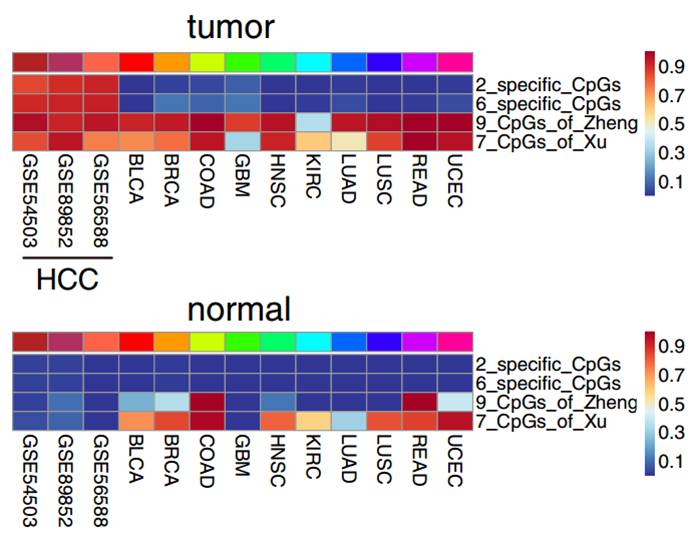
Hepatocellular carcinoma (HCC) is one of the most lethal diseases in the world with most patients diagnosed at advanced stages. Hence early diagnosis is the key to improve survival time of HCC patients.
Previous studies showed that early-stage cancers could be diagnosed by detecting methylation changes in the blood as DNA methylation alteration occurred in tumor genesis and progression.
Recently, a research group led by Prof. LI Yixue at the CAS-MPG Partner Institute for Computational Biology of Chinese Academy of Sciences reported HCC-specific diagnostic biomarkers, which provided a new solution for HCC early diagnosis. The study was published online in Genome Medicine.
Researchers systematically investigated HCC-specific diagnostic biomarkers by comparing HCC with other cancers.
They compared the methylation profiles of 375 HCC samples, 50 normal liver samples, 184 normal blood samples, and 3780 tumor samples from patients with other cancers, and screened HCC-specific hypermethylated CpG sites.
A logistic regression model was constructed to distinguish HCC patients from normal controls based on these hypermethylated sites. Model performance was evaluated using three independent datasets (including 327 HCC samples and 122 normal samples) and ten newly collected biopsies.
This model achieved ~ 92% sensitivity in predicting HCC, ~ 98% specificity in excluding normal livers, and ~ 98% specificity in excluding other cancers.
Compared with previously published methylation markers, the markers reported are the only ones that can distinguish HCC from other cancers.
This study was supported by the grants from Ministry of Science and Technology and National Natural Science Foundation of China.

Performance of HCC prediction model (Image by Prof. LI Yixue’s team)

86-10-68597521 (day)
86-10-68597289 (night)

86-10-68511095 (day)
86-10-68512458 (night)

cas_en@cas.cn

52 Sanlihe Rd., Xicheng District,
Beijing, China (100864)

